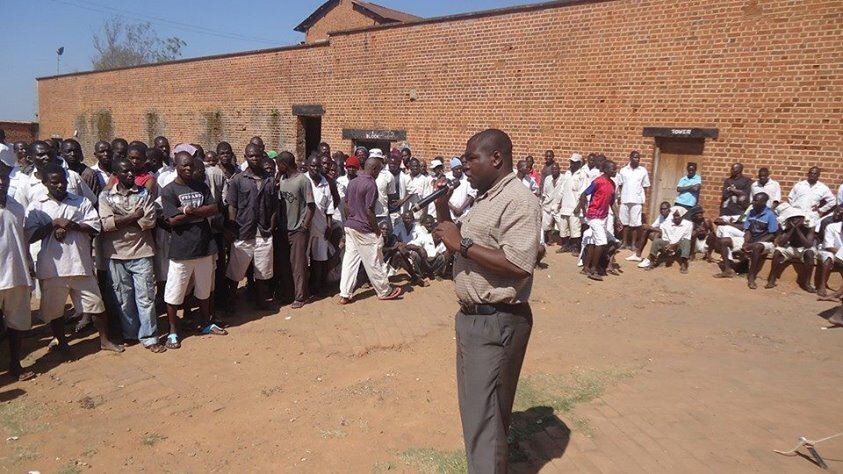
Legal Empowerment
Community Awareness
Nkhokwe Arts Group are a group of ex-prisoners using theatre to educate local communities about the right to bail and how to apply for it, in an engaging and accessible way. MBP paralegals are in attendance at their performances and coordinate a Q&A session after the play
Bail education booklets
We have produced a legal education booklet, which informs those going through the court process about court procedure and their basic legal rights.
The booklet uses bullet point text to explain the role of the Magistrate and Prosecutor, using illustrations to show the layout of the court, and gives a ‘step by step’ guide on how and when to make a bail application. The guide then goes on to explain common phrases a defendant is likely to hear, including the definition of guilty and not guilty and the role of a surety.
Booklets are delivered to courts in Blantyre and the surrounding areas by CHREAA paralegals.
Audio tapes
Due to the low literacy levels in Malawi we have installed a speaker system in the holding cells at Blantyre Magistrate’s Court, which plays a tape recording of the paralegals explaining how and when to apply for bail. This will ensure that all people going through that court will have access to information about their legal rights prior to their first court appearance before the Magistrate.
Toll-free advice line
A free phone number (80 000 333) has been made available to provide those arrested with access to the 24/7 advice line managed by the paralegals at CHREAA.The number is being advertised on local radio and is highlighted on bail education booklets and posters distributed at police stations and courts in Blantyre and the surrounding areas.
Eight handset phones were given out to Blantyre, Limbe, Soche, Ndirande, Chilobwe, Bangwe, Chilomoni and South Lunzu police stations. The provision of the free phones to police stations has not only provided a bail advice line for the accused, but has also eased communication between police and paralegals whenever their services are required.
Camp Courts
These are special court sessions where judges are brought to the prison to consider bail applications from those charged with minor offences, those whose remand warrants have expired or where the accused is particularly vulnerable. Camp Courts are a cost effective, time efficient way to decongest prisons. Each Camp Court hears, on average, between 15 and 20 bail applications and usually 10-15 of these applications are successful.




